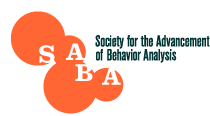2019: Hedda Meadan, Shiri Ayvazo, & Hagit Inbar-Furst
University of Illinois; David Yellin College
Social-communication skills impact academic achievement, social-emotional development, and relationships with others. Therefore, early interventions that support and promote the development of these skills are needed for young children with disabilities who have communication delays or deficits. Furthermore, teaching caregivers to support language development is recommended as an effective early intervention.
In Israel, there are limited training materials for caregivers on evidence-based practices that support the development of social communication skills of young children with disabilities. Only a few resources are available in Hebrew, and there is very restricted access to quality training due to a shortage of Hebrew-speaking qualified experts and the cost of such training.
Drs. Hedda Meadan, Shiri Ayvazo, and Hagit Inbar-Furst designed a project to increase caregivers’ access to evidence-based behavioral practices and promote public awareness of these practices in Israel. They will translate and culturally adapt online self-paced, self-directed training modules developed in the US by Dr. Meadan. The modules include information on evidence-based behavioral practices (e.g., environmental arrangement, modeling, mand-modeling) that can be used in the natural environment to promote children’s social-communication skills. Also included are a flowchart with steps for using the practices and video examples of caregivers employing them with their children.
To evaluate the modules’ effectiveness, researchers will pilot them with at least 10 families and 10 professionals. Participants will complete checks for understanding at the beginning and end of each module. In addition, to assess the feasibility and acceptability of the online training, satisfaction questionnaires and in-depth interviews and focus groups will be conducted. Modules will be revised based on findings, and the revised versions will be made available to caregivers and professionals.
Back to Public Awareness Grant Recipients
